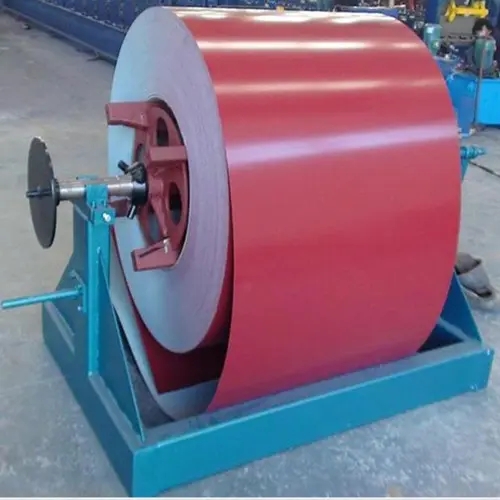
Stud Forming Machine Revolutionizing Fastener Production
In the evolving landscape of manufacturing technology, the stud forming machine stands out as a transformative piece of equipment, revolutionizing the production of fasteners. These machines are designed to produce high-quality studs, bolts, and other fasteners with great precision and efficiency. As industries increasingly focus on automation and lean manufacturing practices, stud forming machines have become integral to meeting the demands of modern production lines.
Understanding Stud Forming Machines
At its core, a stud forming machine is a specialized piece of machinery used to create threaded fasteners such as studs and bolts from raw materials, typically wire or rod. The process involves a series of forming operations that shape the metal into the desired form without cutting it. This method, known as cold forming, utilizes mechanical processes such as bending, rolling, and forging, which not only enhances the strength of the fasteners but also minimizes waste.
Stud forming machines can be classified into semi-automatic and fully automatic models. Semi-automatic machines require some manual intervention, while fully automatic machines can operate with minimal human oversight, significantly increasing production rates. The advancement of technology has led to the development of CNC (Computer Numerical Control) stud forming machines, which provide unparalleled accuracy and flexibility, allowing manufacturers to easily switch between different production runs.
Advantages of Stud Forming Machines
The use of stud forming machines offers several significant advantages
. Firstly, the cold forming process allows for the production of fasteners with superior strength characteristics compared to those made through traditional cutting methods. This is particularly important in applications where tensile strength is critical, such as in automotive and aerospace industries.Secondly, stud forming machines significantly reduce material waste. Since the process manipulates the raw material rather than cutting it away, the amount of scrap generated is considerably lower. This not only makes the process more economical but also aligns with modern sustainable manufacturing practices.
Moreover, the high-speed capabilities of these machines mean that production can occur at a much faster rate compared to manual or semi-automatic methods. This efficiency is crucial in meeting the increasing demand for fasteners in various industries, from construction to electronics.

Applications of Stud Forming Machines
Stud forming machines are widely used across different sectors, including automotive, aerospace, electronics, and construction. In the automotive industry, for instance, they are essential in producing components that hold various parts of vehicles together. The precision and reliability of these fasteners ensure vehicle safety and performance.
In the aerospace sector, where every component must withstand extreme conditions, the strength and reliability of fasteners are paramount. Stud forming machines enable manufacturers to produce fasteners that meet the stringent standards required in this industry.
Additionally, in electronics, studs and bolts are used to assemble circuit boards and various devices. The small size and intricate designs needed in this sector can be easily achieved through advanced stud forming technologies.
Future of Stud Forming Machines
As manufacturing practices continue to advance, the future of stud forming machines looks bright. With the integration of automation and smart technologies, machines are becoming more efficient and user-friendly. Additionally, the shift towards Industry 4.0 is set to enhance the connectivity and data utilization of these machines, allowing for real-time monitoring and predictive maintenance.
Environmental considerations also play a significant role in the future development of stud forming machines. Manufacturers are increasingly looking for ways to reduce their carbon footprint, and modern machines are being designed with energy efficiency in mind.
Conclusion
In conclusion, stud forming machines are at the forefront of fastener production technology, offering numerous advantages in terms of efficiency, quality, and sustainability. As industries continue to innovate and evolve, these machines will play an essential role in ensuring that manufacturers can meet the demands of tomorrow while adhering to high standards of performance and environmental responsibility. The ongoing advancements in this domain will undoubtedly lead to even greater outcomes in manufacturing and efficiency, shaping the future of industries worldwide.